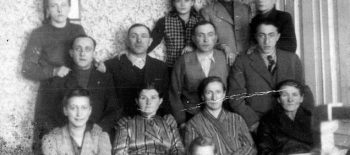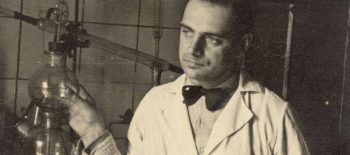Jerzy Pozimski was one of the longest-serving prisoners in the Auschwitz concentration camp.
He was given a job in the camp, and in that capacity, he was able to move between the different parts of the camp and make contact with the prisoners,
as well as influence their transfer between jobs. Pozimski made contact with a group of female prisoners working in the camp command post who had access to the prisoners’ cards.
At their request, Pozimski carried out tasks for them to save the lives of their relatives or friends by moving them to different jobs; taking them from more physically
demanding jobs to easier jobs in more protected surroundings.
Pozimski brought food, clothing and medicines vital for their survival to Jewish prisoners.
In this way, he saved a prisoner named Kleinhändler, who was already critically ill, and the 16-year-old Jacub (Jakob) Maestro, who arrived in Auschwitz in March 1943
on a transport from Salonika. Pozimski took Maestro off the transport and used him as an assistant and interpreter, and through him was able to help other prisoners.
In order to facilitate things for Jewish prisoners, Pozimski tried to place them on construction jobs on which Polish prisoners also worked, so that they could engage
in the barter of vital commodities. The Jewish women prisoners, who together with Pozimski helped the Jewish prisoners, later testified to Pozimski’s courage,
that he had acted courageously to save Jews during the terrible times in the Auschwitz camp.
In January of 1975, Pozimski was invited to Israel in honor of the 30th anniversary of the liberation of Auschwitz and he spent time with former prisoners, including Jacub Maestro.
On April 6, 1989, Yad Vashem recognized Jerzy Pozimski as Righteous Among the Nations.





